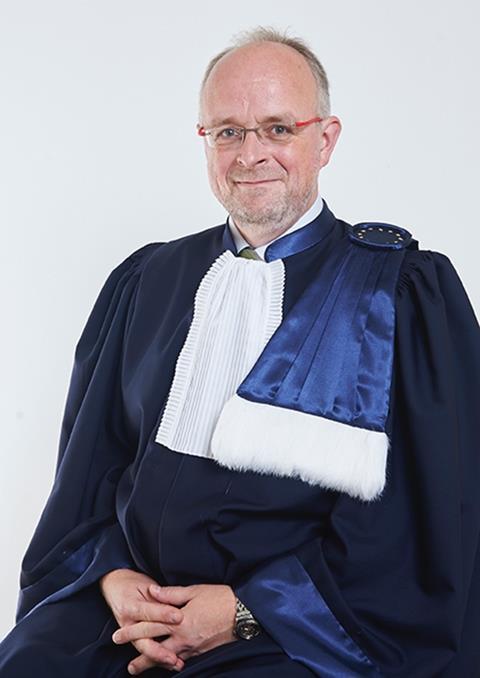The outgoing UK judge of the European Court of Human Rights has said the institution is more vital than it has been for decades, amid ongoing calls for the UK to leave.
Speaking at the end of a week in which the Conservative Party advocated leaving the European Convention on Human Rights, Tim Eicke KC rejected the suggestion that it no longer suits the UK to be a member.
Eicke, whose nine-year term as the UK’s judge ended last month, gave his first speech since leaving at the Legal Wales conference in Bangor on Friday. He said he ‘hardly recognised’ the court he knew from the recent commentary and criticism of its work and that the original purpose of the ECHR was now ‘more relevant and more necessary than for some time’.

Eicke gave a list of ways in which the court had established positive societal change that changed the UK. This included the abolition of birching in the 1970s, helping to expose the thalidomide scandal, lifting the ban on homosexual people in the armed forces and being responsible for the Hillsborough public inquiry reopening. ‘We can be certain that over the last 70 years the convention has repeatedly stepped in when domestic courts were unable to provide the protection we now take for granted and cherish,’ he added.
Eicke addressed critics who said the convention had strayed too far from its original post-war purpose, saying that it was required to be a ‘living instrument’ that adapted to major developments such as the war in Ukraine.
He also directly tackled the issue of migration which has underscored much of the opposition to the ECHR. Conservative leader Kemi Badenoch said last week that leaving the convention would allow the government to secure UK borders as well as end ‘spurious legal action’ against veterans, stop activist challenges on planning and energy and make sentencing tougher.
Eicke said immigration was in his experience a ‘relatively small part of the work’ and that ‘frequently’ single judges on the court declared applications to stop deportation as inadmissible. He said 274 applications relating to immigration are pending in the UK, and Eicke said that few would reach a full determination because the ‘domestic courts do such a good job in interpreting the law there is little the European court can improve on’.
Referencing a recent report by the University of Oxford, he pointed out that the European court has heard 29 cases from the UK concerning the removal of foreign nationals, and in 16 of them it was found there had been no breach of the law and that deportations could go ahead.
This article is now closed for comment.



























22 Readers' comments